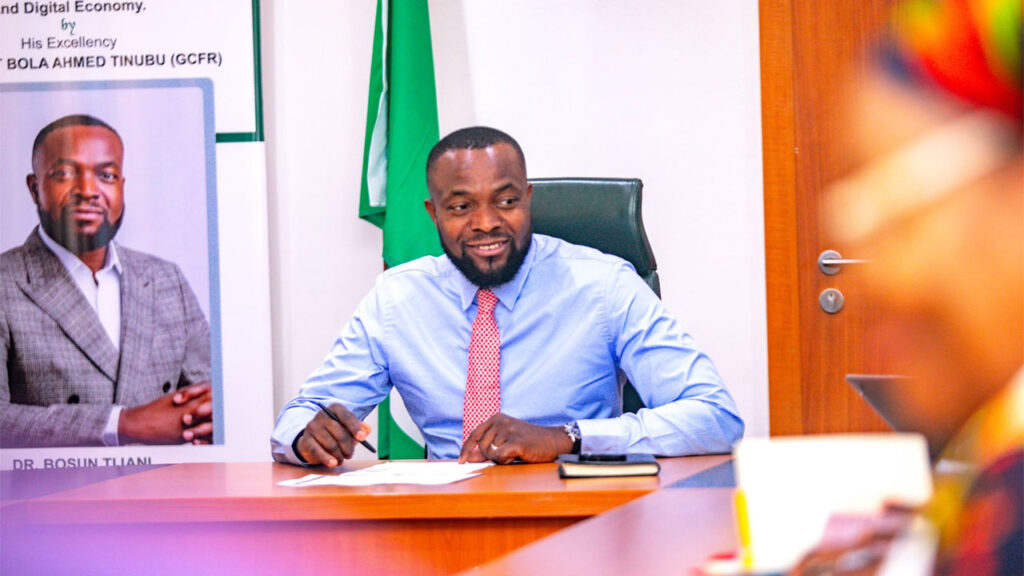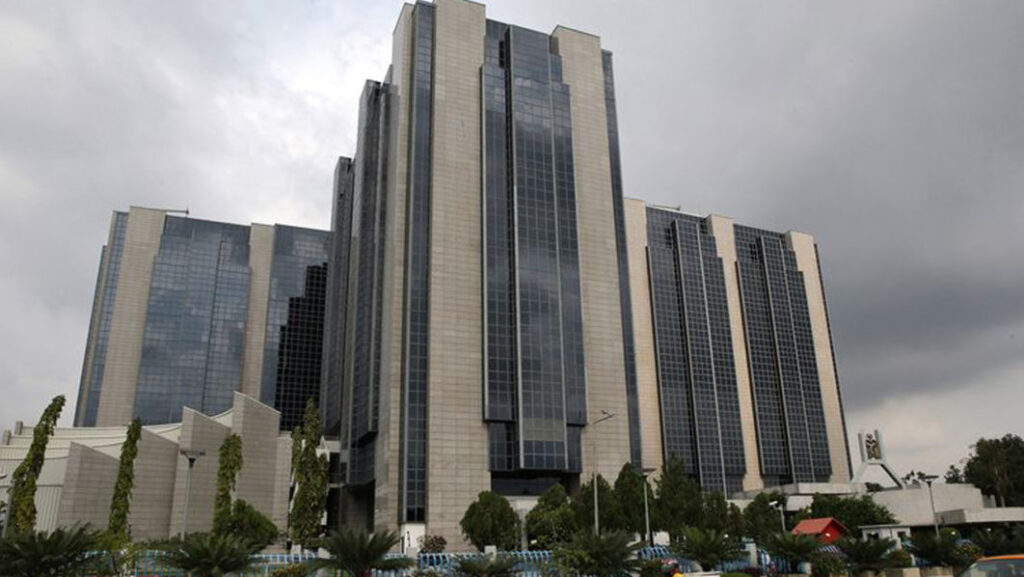
THE sudden, non-speculative and voluntary retirement of the Group Managing Director/Chief Executive Officer of First Bank of Nigeria Limited, Bisi Onasanya, may 00have become an opportunity for stakeholders to assess the bank’s contributions to the development of the economy at large, particularly the years under his watch.
The planned exit of Onasanya from the financial institution would also be aptly described as industry surprise because the allowable period of 10 years for a sitting chief executive, which became a rule at the prompt of the last banking crisis, as a foil to sit-tight brand of leadership, is still years ahead for him. Even his years at First Bank’s employ, the industry as a whole and the traditional retirement age are still in his favour.
For the FirstBank Group, the retirement is at a high point of his career, steering the leadership of a subsidiary that stands as Nigeria’s most valuable banking brand to the successful completion of his tenure, which takes effect at the end of the current Financial Year- December 31, 2015, entrenching stability and modernisation, thus reinforcing the confidence of the bank’s diverse stakeholders and the global financial publics.
For the Chief Executive Officer, Financial Derivatives Limited, Bismarck Rewane,Onasanya came into the saddle at First Bank to fill in the very big shoes of the former governors of Central Bank of Nigeria (CBN).
“During his term, the industry went through major turbulence, including a cyclical downturn, stress tests and a surgical intervention by the CBN. His leadership skills saw FBN not only maintaining its leadership status among the Tier 1 banks. It also kept its Iron grip as the bank with the largest geographical footprint, 611 branches, the most liquid and an unprecedented customer penetration. One can only describe Bisi as the consolidator of the consolidated banks of this decade,” he said.
Group Publisher and Managing Director, IC Publications, Omar Ben Yedder, said: “My Nigerians colleagues tell me indeed that he has been a fantastic leader and that First Bank is one of the best run institutions in the country. It surely will be big boots to fill, but the financial institution has always managed to churn out many great leaders over the years like him.”
The Managing Director of Proshare Nigeria Limited, Femi Awoyemi, also commented: “Bisi Onasanya will remain one of the few intellectual giants of the banking industry who managed to navigate within corporate governance codes and ethos; the fiscal and monetary landscape of the Nigerian economy to the credit of the foremost bank in the country, the banking regulators – the Central Bank of Nigeria; and the banking/investing public.
“He was as comfortable in the midst of analyst and policy makers as he was with banking executives such that his views were well regarded as was his leadership of the bank during a very challenging period. He has earned our respects and adoration.”
However, records show that under his leadership, the financial institution underwent real reforms that brought the bank to a renewed generational facelift.
In a statement signed by the bank’s Global Head, Marketing and Corporate Communications, Folake Ani-Mumuney, Onasanya is “widely reputed as the architect of the modern FirstBank, associated with various innovative and creative achievements. He was Project Coordinator of Century 2- FirstBank’s far-reaching enterprise transformation project at the turn of the century, as well as Project Coordinator of the FirstBank Corporate Transformation project, which has seen the bank accentuating its foothold on modernisation. He also superintended the latest composite Corporate Identity/Brand Refresh of the FirstBank Group, a bold step heralding the international expansion of the FirstBank brand.
“He has ensured the steady internationalisation of FirstBank, which under his leadership now boasts of subsidiaries with operations across Africa, Europe, the Middle East and Asia, while being reputed as people’s person, having pioneered significant transformation in the development of staff at FirstBank.
“His tenure saw the transformation of the bank’s training centre into FirstAcademy, a best in class corporate university that recently clinched the 2015 Global Council of Corporate Universities Award for best impact by a corporate university on the implementation of business strategies. The bank has also received the highly coveted Best Place to Work award.
“Onasanya’s leadership FirstBank has been back to back winner of both national and international awards, having been named ‘The Best Bank Brand in Nigeria’ four times in a row – 2011, 2012, 2013, and 2014 – by the globally renowned The Banker Magazine of the Financial Times Group. For four consecutive years, 2012, 2013, 2014, and 2015, FirstBank has been named the ‘Best Retail Bank in Nigeria’ by the Asian Banker International Excellence in Retail Financial Services Awards. Other recent awards include the ‘Best Bank in Nigeria’ in the Euromoney Awards for Excellence, ‘Best Bank in West Africa’ and ‘Most Innovative Bank in Africa’ in the African Banker Awards, ‘Best Bank in Nigeria’ in the EMEA Finance African Banking Awards for the fourth time, ‘Best Foreign Exchange Services in Africa’ in the EMEA Finance Treasury Services Awards, ‘Best Banking Group in Nigeria’ by World Finance Banking Awards, and “Best Financial Reporting Company” by Africa Investor.”
Indeed, the economies of all market-oriented nations depend on the efficient operation of complex and delicately balanced systems of money and credit, which banks like First Bank, are an indispensable element in its operational modes.
According to records, First Bank has in the last five years, participated actively in banks’ roles in economic development of the country through direct investments and involvements on syndications that are aimed at developing the critical infrastructure of the country.
By playing key roles in the federal government’s privatisation and commercialisation scheme over the past years, especially in recent years under Onasanya, First Bank has led the financing of private investment in infrastructure development in the Nigerian economy.
A key element of the Bank’s strategy is its continued focus on retail banking and consumer financing, gradually shifting towards a high yield diversified portfolio by aggressively targeting the middle class consumer market. The market opportunity is evident in the fact that consumer spending, which is a major driver of domestic demand in developed economies, still constitutes a relatively lower percentage of GDP in Nigeria.
The Bank’s Transaction and Private Banking strategic business unit (SBU) ensures the banking convenience of high net-worth customers, which require specialised banking services to cater for their peculiar needs. Also, in order to provide enhanced support for smaller businesses, there has been a re-organisation of the Corporate Banking SBU to spin out the Commercial Banking SBU.
This creates a different value proposition to that critical segment of the business community where pillars of economic growth are nurtured. First Bank’s Specialised Lending Department (SLD) focuses on structuring project and object finance transactions across various sectors of the economy, especially in the areas of infrastructure, power, oil and gas, transportation and real estate.
The bank supports acquisition of stakes in Oil Mining Leases (OMLs), financing development of oilfields, financing cash calls for both operating and capital expenditures through Strategic Alliance Contracts. First Bank has provided over $1billion to part-finance acquisition of interests, as well as working capital for production to a number of OMLs; and an aggregate of about $500 million for construction and completion of Gas pipelines to marginal fields and cement plants.
A review of the industry showed that First Bank is at the forefront in financing power projects and has provided over $220 million to part-finance the acquisition of both Generating Companies and Distribution Companies under the privatisation of the Power Sector by the Federal Government.
The Bank’s support for infrastructure development spans the entire country, having participated in various syndication transactions and direct funding of over N100 billion for redevelopment and tolling of roads, airport terminals, ultra-modern markets, site and services schemes, construction and maintenance of engineering infrastructure under PPP arrangements, New Town Developments, 24-hour lighting solutions and solar powered street lights, and Shopping Malls with Shoprite and Game as Anchor tenants.
As West Africa’s pioneer financial services group, First Bank raised its contributions to national growth and development over the past century, ensuring methodical and rapid economic transformation that is further strengthened through the First Bank Impact Series, the policy and thought leadership initiative. The Series is run through insightful, actionable and change-centred conferences, workshops, seminars, strategy sessions, and policy implementation road-shows to drive far-reaching changes in the society.
First Bank is actively involved in the agriculture sector of the economy and has been a major financier of various types of assets for the establishment, expansion and modernisation of various agricultural enterprises. The Bank has introduced customer-friendly and need-focused product schemes, partnered with international organisations and collaborated with Federal, state governments and the CBN, to support the sector, with a pledge to sustain the economic activities.
A distinct leader by total assets and gross earnings in the Nigerian banking industry, First Bank of Nigeria Limited- a subsidiary of FBN Holdings Plc, presently accounts for 38 per cent of bills payment services in the nation’s banking industry as at December 2014. As at December 2014, the bills paid through the bank’s Automated Teller Machines (ATMs) stood at about N928.48 million while the value of airtime purchase on all its ATMs was over N3.2 billion. The bills payment option is one of the features of First Bank’s ATMs, which also have other unique functional features which include cash transfer, air-time top-up, and cash deposit among others.
The ATM transfer feature enables customers to transfer money from their accounts to both intra (within the bank) and interbank (other banks) accounts, thereby reducing the queues in the banking hall, save time as well as provide a more convenient option for customers’ money transfer needs. In 2014 alone, N251 billion was transferred from one account to another using First Bank ATM. First Bank is presently leading in the industry as the bank with the highest number of Automated Teller Machines (ATMs) with over 2500 ATMs deployed across the country, making it the nation’s financial institution with the widest retail footprint.
The bank is also currently responsible for over 40 per cent of interbank transactions and 26 per cent of airtime vending. As active mobile network users in Nigeria are over 130 million and the need to recharge is on the increase, the bank’s ATMs also provide the platform for easy top-up.










